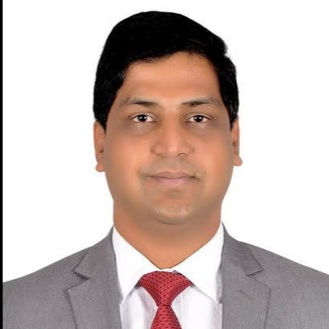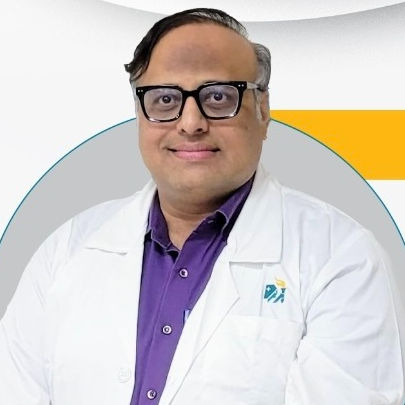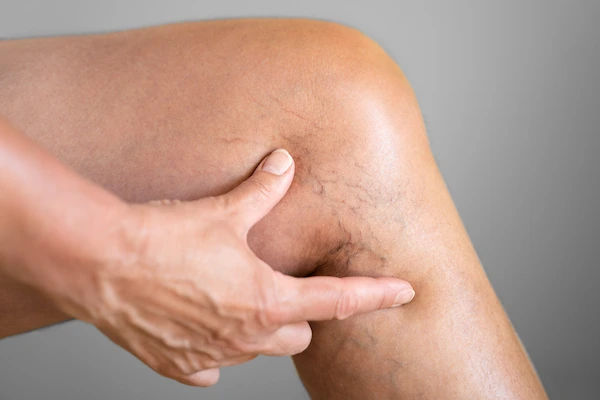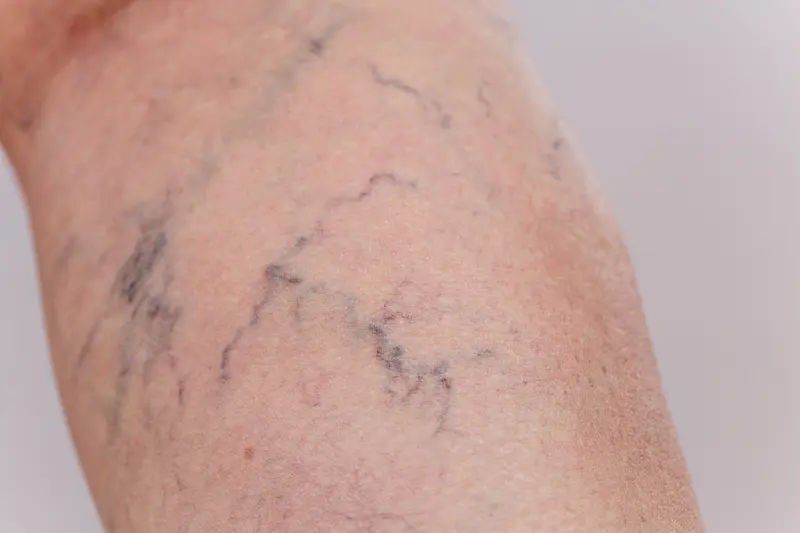Varicose Veins in Young Adults: Causes, and Prevention
Discover what causes varicose veins in young adults, how to prevent them, and ways to maintain healthy veins.

Written by Dr. M L Ezhilarasan
Reviewed by Dr. Rohinipriyanka Pondugula MBBS
Last updated on 30th Sep, 2025

Introduction
Think varicose veins are just a concern for your grandparents? Think again. A growing number of young adults in their 20s and 30s are noticing the tell-tale bulging, twisted, and blueish veins on their legs. While often dismissed as a mere cosmetic issue, varicose veins can cause significant discomfort, aching, and swelling, impacting an active lifestyle. If you're young and wondering why this is happening to you, you're not alone. This article dives deep into the specific factors, from genetics to modern lifestyle choices like desk jobs and intense fitness regimens, that lead to varicose veins in young adults. We'll move beyond the basics to explore practical prevention strategies and demystify the effective, minimally invasive treatments available today. Understanding the "why" is the first step toward taking control of your vascular health.
What Are Varicose Veins, Really?
At its core, a varicose vein is a sign that your circulatory system is working against gravity. Your arteries carry oxygen-rich blood from your heart to the rest of your body, while your veins have the tougher job of carrying deoxygenated blood back up to your heart. To prevent backflow, veins contain tiny one-way valves.
The Simple Explanation: Faulty Valves in Your Veins
Varicose veins develop when these tiny valves become weak or damaged. Instead of closing tightly to keep blood moving upward, the faulty valves allow blood to pool inside the vein. This increased pressure causes the vein to stretch, twist, and bulge outward, becoming visible under the skin. While they can occur anywhere, legs are most affected because they are farthest from the heart and gravity's pull is strongest.
Consult a Vascular Surgeon for the best advice
Why Me? Top Causes of Varicose Veins in Your 20s and 30s
For young adults, the development of varicose veins can feel surprising, but several key factors are often at play.
The Genetic Hand You're Dealt (It's Not Just Grandma's Problem)
The number one predictor for developing varicose veins is family history. If one or both of your parents have them, your risk increases significantly. This genetic predisposition means you may be born with weaker vein walls or valves. It’s not that you’ve inherited your grandmother’s veins; you’ve inherited the tendency to develop them, which can be triggered by other lifestyle factors at a much younger age.
Modern Lifestyles: Sitting, Standing, and Straining
This is a major area where young adults face unique challenges compared to previous generations.
The Desk Job Dilemma: How Prolonged Sitting Takes a Toll
Many careers today require long hours at a desk. Remaining stationary for extended periods makes your calf muscles, which act as a secondary pump for leg veins, inactive. This leads to poor circulation and increased pressure in the leg veins, a primary cause of varicose veins in 20s. Similarly, jobs that require prolonged standing (e.g., in nursing, teaching, or retail) also force the veins to work harder against gravity.
Fitness Fanatics Beware: High-Impact Sports and Heavy Lifting
Ironically, the very activities meant to improve health can contribute to the problem. High-impact exercises like running on hard surfaces or intense jumping can jar the body and increase abdominal pressure. Similarly, heavy weightlifting, especially when holding your breath during a lift (known as the Valsalva maneuver), creates a massive spike in intra-abdominal pressure. This pressure travels down and stresses the valves in the leg veins, making varicose veins from weightlifting a real concern for young gym-goers.
Hormonal Shifts: Birth Control, Pregnancy, and Puberty
Hormones play a significant role. Oestrogen and progesterone, which fluctuate during puberty, the menstrual cycle, and especially pregnancy, can relax vein walls. Hormonal contraceptives (like birth control pills) can also have this effect. During pregnancy, the volume of blood increases, but blood flow from the legs to the pelvis decreases, putting immense pressure on leg veins. These varicose veins in early pregnancy can sometimes improve after childbirth, but the damage to the valves may be permanent.
Weight and Diet: The Unseen Pressure on Your Veins
Excess body weight adds literal pressure on the veins in your pelvis and legs, making it harder for blood to return to the heart. A diet low in fibre can lead to constipation, which also increases abdominal pressure and can strain pelvic veins. Maintaining a healthy weight is one of the most effective ways to prevent varicose veins at a young age.
More Than a Cosmetic Issue: Recognising the Symptoms
While the twisted, bulging appearance is the most recognisable sign, varicose veins often come with a host of uncomfortable symptoms, especially as the day progresses. Young adults should watch for:
- Aching or heaviness in the legs.
- Throbbing, burning, or muscle cramping.
- Swelling in the feet and ankles.
- Worsened pain after sitting or standing for long periods.
- Itching around the vein.
- Skin discoloration or even ulcers near the ankle in severe cases.
If you experience persistent pain, swelling, or skin changes, it’s important to get a professional evaluation. If symptoms persist beyond two weeks, consult a doctor online with Apollo24|7 for further evaluation.
Busting Myths: Varicose Veins in Young Adults Aren't "Inevitable"
A common myth is that if you're genetically predisposed, there's nothing you can do. This is false. While you can't change your genes, you have immense control over your lifestyle. Proactive measures like regular movement, maintaining a healthy weight, and choosing vein-friendly exercises can significantly delay the onset and reduce the severity of varicose veins, even with a strong family history.
Taking Control: Prevention Strategies for an Active Life
Staying proactive about your health can help you enjoy a longer, more active life.
Move It or Lose It: Simple Exercises for Healthy Circulation
The goal is to keep blood moving. If you have a desk job, set a timer to stand up and walk for 5 minutes every hour. Incorporate activities like walking, swimming, cycling, or yoga into your routine. These exercises engage the calf pump without creating excessive pressure.
Wardrobe Wins: Choosing Clothes and Shoes That Help
Avoid tight clothing that restricts blood flow at the waist, groin, or legs. Opt for low-heeled shoes instead of high heels, as they engage your calf muscles more effectively, promoting better circulation.
Diet for Vascular Health: Foods That Strengthen Your Veins
A diet rich in fibre (to prevent straining) and bioflavonoids can support vein strength. Bioflavonoids, found in brightly colored fruits and vegetables like berries, citrus fruits, onions, and dark leafy greens, have anti-inflammatory properties and may help reinforce vein walls.
Modern Treatment Options: Effective and Minimally Invasive
Gone are the days when treatment meant painful vein stripping surgery. Today, treatments are outpatient procedures with minimal downtime. Options include:
- Endovenous Laser Ablation (EVLA): A laser fibre is inserted to seal the faulty vein.
- Radiofrequency Ablation (RFA): Uses thermal energy to collapse the vein.
- Sclerotherapy: A solution is injected to irritate and close smaller spider and varicose veins.
These procedures redirect blood to healthier veins, and the body eventually absorbs the closed vein.
Conclusion: You Have the Power to Protect Your Veins
Seeing varicose veins appear in your youth can be unsettling, but it's also a powerful warning sign from your body. It’s an opportunity to understand the unique pressures of your modern lifestyle, from your career to your workout routine, and take proactive steps. While genetics set the stage, your daily choices direct the play. By incorporating more movement, making smart fitness choices, and paying attention to your body’s signals, you can manage your vascular health effectively. Remember, these veins are a medical condition with highly effective solutions. Don’t hesitate to seek professional advice to explore your options and get back to living your life without discomfort.
Consult a Vascular Surgeon for the best advice
Consult a Vascular Surgeon for the best advice

Dr. Abhijit Das
Surgical Oncologist
10 Years • MBBS MS, MCh (Surgical Oncology), Fellowship in Thoracic Oncology (SNUK, Korea), Fellowship in Advance Esophageal Surgery (NCC, Japan)
Chennai
Apollo Proton Cancer Center, Chennai

Dr Yashpal Singh
Vascular and Endovascular Surgeon
18 Years • MBBS, MS (Gen. Surgery), DNB ( Peripheral Vascular Surgery)
Lucknow
Apollomedics Super Speciality Hospital, Lucknow

Dr. Prakash Goura
Vascular and Endovascular Surgeon
8 Years • MBBS , DNB ( GENERAL SURGERY) , MRCS, MCh ( VASCULAR & ENDOVASCULAR SURGERY)
Hyderabad
Apollo Hospitals Jubilee Hills, Hyderabad
(50+ Patients)

Dr. Shashidhar K P
Vascular and Endovascular Surgeon
15 Years • MBBS, MS, MCh, FIVS
Bengaluru
Apollo Hospitals Sheshadripuram, Bengaluru
(25+ Patients)

Dr. Lal Daga
Cardiologist
20 Years • MBBS, DNB [MED], DNB [CARDIO], FESC [INT], MNAMS
Ahmedabad
Apollo Hospitals Gandhinagar, Ahmedabad
Consult a Vascular Surgeon for the best advice

Dr. Abhijit Das
Surgical Oncologist
10 Years • MBBS MS, MCh (Surgical Oncology), Fellowship in Thoracic Oncology (SNUK, Korea), Fellowship in Advance Esophageal Surgery (NCC, Japan)
Chennai
Apollo Proton Cancer Center, Chennai

Dr Yashpal Singh
Vascular and Endovascular Surgeon
18 Years • MBBS, MS (Gen. Surgery), DNB ( Peripheral Vascular Surgery)
Lucknow
Apollomedics Super Speciality Hospital, Lucknow

Dr. Prakash Goura
Vascular and Endovascular Surgeon
8 Years • MBBS , DNB ( GENERAL SURGERY) , MRCS, MCh ( VASCULAR & ENDOVASCULAR SURGERY)
Hyderabad
Apollo Hospitals Jubilee Hills, Hyderabad
(50+ Patients)

Dr. Shashidhar K P
Vascular and Endovascular Surgeon
15 Years • MBBS, MS, MCh, FIVS
Bengaluru
Apollo Hospitals Sheshadripuram, Bengaluru
(25+ Patients)

Dr. Lal Daga
Cardiologist
20 Years • MBBS, DNB [MED], DNB [CARDIO], FESC [INT], MNAMS
Ahmedabad
Apollo Hospitals Gandhinagar, Ahmedabad
More articles from Varicose Vein
Frequently Asked Questions
Is it normal to have varicose veins at 25?
While more common in older adults, it is not uncommon to develop varicose veins at 25, especially if you have a family history, a sedentary job, or participate in high-impact activities. It's a sign to pay attention to your vascular health.
Can exercise cause varicose veins?
Certain types of exercise can contribute. Activities that cause a sustained increase in abdominal pressure, like heavy weightlifting, or high-impact exercises can be risk factors. However, moderate, rhythmic exercise like walking and swimming is excellent for prevention.
What's the difference between spider veins and varicose veins in young people?
Spider veins are smaller, red or blue web-like veins closer to the skin's surface and are usually only a cosmetic concern. Varicose veins are larger, raised, swollen blood vessels that can cause physical symptoms like aching and heaviness.
Will my varicose veins go away if I lose weight?
Losing weight can significantly reduce symptoms and pressure on your veins, potentially making them less noticeable. However, once the valves are damaged, the vein will not typically 'heal' itself. Weight loss is a crucial part of management and prevention but may not reverse existing veins.
Are the treatments for young adults different?
The treatment options (e.g., ablation, sclerotherapy) are the same regardless of age. The choice of treatment depends on the size, location, and severity of the veins. A vascular specialist can recommend the best minimally invasive procedure for your specific case.


